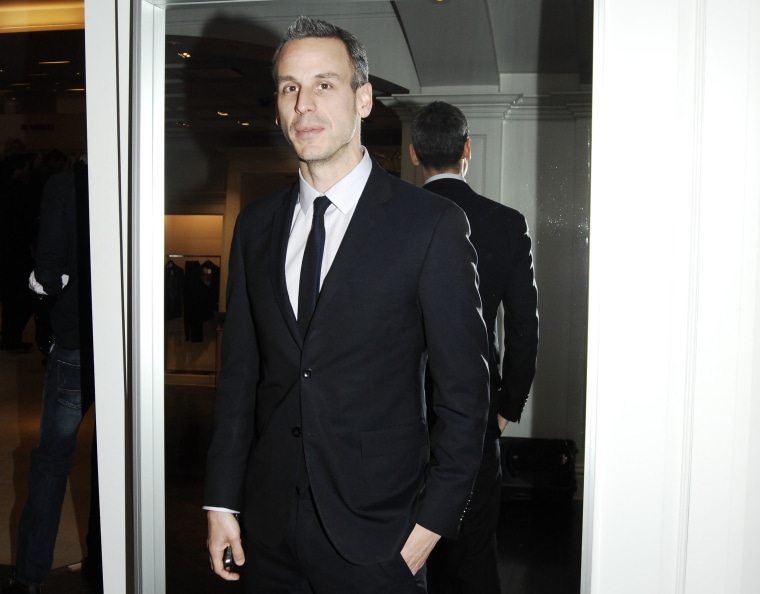Less than 24 hours after James Bennet resigned as editorial page editor of The New York Times, the social upheaval over racial injustice continues to force changes across the media industry.
On Monday, editors at Bon Appétit and Refinery29 resigned amid staff protests over their leadership, various outlets faced scrutiny over their treatment of black staffers and one publication said it would support its journalists' right to protest.
The changes come as media companies are being forced, often by their own staffs, to reassess their role in the fight for racial justice, whether that means rethinking diversity inside their companies or re-examining their commitment to editorial "objectivity."

Adam Rapoport, the editor-in-chief of Bon Appétit, resigned after a photo surfaced showing him in brownface and amid allegations that the magazine discriminated against people of color.
A photo of Rapoport and his wife, Simone Shubuck, in Halloween costumes apparently dressed in a derogatory Puerto Rican stereotype resurfaced online after nearly seven years. The photo drew online backlash but also an internal uproar from employees who demanded action.
Sohla El-Waylly, an assistant food editor, called for Rapoport's resignation in a series of Instagram stories, in which she said the behavior was indicative of systemic racism at Condé Nast, Bon Appétit's parent company.
"I am 35 years old and have over 15 years of professional experience," El-Waylly said. "I was hired as an assistant editor at $50k to assist mostly white editors with significantly less experience than me."
She also revealed that she has been pushed in front of the camera as a "display" of diversity but that only white editors are paid for video appearances, a popular part of Bon Appétit's brand. El-Waylly received the support of fans and her colleagues, including Bon Appétit test kitchen star Claire Saffitz.
In a statement announcing his resignation, Rapoport said he needed "to reflect on the work that I need to do as a human being and ... allow Bon Appétit to get to a better place."
"From an extremely ill-conceived Halloween costume 16 years ago to my blind spots as an editor, I have not championed an inclusive vision," he said. "And ultimately, it's been at the expense of Bon Appétit and its staff, as well as our readers."
Christene Barberich, the editor and co-founder of Refinery29, announced that she would step down after several employees said they had been discriminated against at the company. "We have to do better," Barberich said in a statement, "and that starts with making room."
Download the NBC News app for breaking news and alerts
Refinery29 built its brand around female empowerment, but it has been accused of a toxic work culture that excluded women of color. Former employees accused the brand of paying women of color, particularly black women, significantly less than their white colleagues. Some have also accused the brand of retaliating when those women pointed out workplace issues.
Ashley Alese Edwards, a former editor, claimed in a Twitter thread Sunday that she was scolded by the editor-in-chief after she raised concerns about the tone of a personal essay about immigration written by a white actress who grew up in Texas. Edwards said she raised other concerns, such as pay equity, to leadership.
"When it was time for me to get promoted, I was promoted to deputy director, not director, without any clear explanation why," Edwards said. "There was no one above me. This is all despite my team producing high profile content, breaking several exclusive stories& getting national TV appearances."
Khalea Underwood, another former employee, alleged in a Twitter thread Friday that she felt "tokenized" and continually discouraged from taking on opportunities while working as a beauty writer.
"Soon, I began second-guessing everything that I did, wore, wrote, pitched, & said. For the first time in my life, I experienced anxiety attacks," Underwood wrote. "One was so bad that I had to take myself to the ER, fearing that I was experiencing a heart attack. I was losing my voice and my mind."
Barberich said in her statement Monday that she hoped that her resignation would help bring on a new chapter at Refinery29.
"A chapter that demands a new voice — both for our team and our audience — one that can shape and guide the critical stories that have the real power to shift and disrupt our culture, helping to eliminate institutional barriers that separate us and hold our society back," Barberich wrote.
Meanwhile, the Pittsburgh Post-Gazette is facing scrutiny after an NPR report showed that the paper's editors banned a black reporter from covering protests because of tweets they deemed to be biased. But those editors did not take similar action on tweets from a white reporter, the NPR report showed.
Finally, Jim VandeHei, the co-founder and CEO of Axios, announced Monday that his company would take the rare move of supporting Axios journalists who take part in public protests and would cover bail or assist with medical bills if they were arrested or physically harmed.
